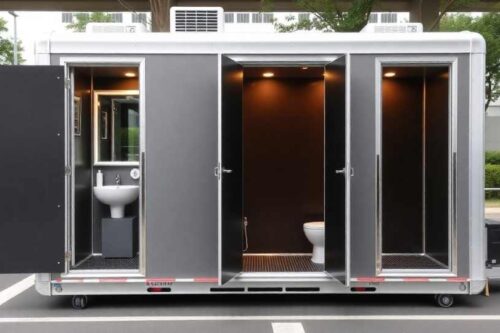Introduction
Let’s face it: starting a business is tough. It takes work, dedication, and lots of patience. But it can also be an amazing opportunity to make money and live a dream! So if you’re ready for a new adventure that puts your skills to the test and challenges your mind every day (while also providing plenty of opportunities for fun), then start thinking about how you can grow your company in Alaska.
- Introduction
- How to start a photography business in Alabama
- Name your business.
- Choose a structure.
- Register your business.
- Apply for an EIN.
- Open a bank account.
- Set up accounting.
- Apply for permits and licenses.
- Get zoning approval.
- Find the right location for you.
- Build credit for your business.
- Get the right insurance for your business.
- Define your brand.
- Create a website, flyer, or other marketing materials.
- Starting a business in Alaska is probably easier than you thought!
- Conclusion
How to start a photography business in Alabama
Here are 14 steps on how to get started:
Name your business.
When choosing a name for your business, think about what you want it to be. You can name your company after yourself, or pick a name that is easy to remember and spell. If you want people to remember your business, then it’s important that they are able to pronounce the word as well.
Make sure the name is professional in nature and does not already belong somewhere else (such as Facebook). It should also be something connected with what you do because this will help promote awareness among potential customers who may visit their website or social media networks before making any purchases from them.
Choose a structure.
There are several structures you can choose from when starting a business in Alaska, each with its own advantages and disadvantages.
- Sole proprietorship: This is the simplest structure to start a business with. You have complete control over all aspects of your business and do not have to pay any taxes or fees related to being an employee. All transactions must be made through you personally — if you hire someone else, they will be considered partners in the company even if they don’t work for pay. However, this means that your personal assets could be seized if your company fails financially so it’s important that you protect yourself by having multiple accounts set up so that if one gets taken away by creditors (in case something goes wrong), there’s still money available from another source such as savings accounts or retirement funds .
- Partnership: Partnerships allow two or more people together create something new together without having ownership rights individually; instead each partner contributes money into what would otherwise be called “common stock” which gives each participant shares proportionate ownership over profits derived from their efforts towards achieving success within this venture – depending on how much cashflow generated per month may determine how many shares each person receives based upon their individual contributions towards those goals being realized within said timeframe period (example: Weekends only).
Register your business.
To register your business in Alaska, you will need:
- A copy of your Articles of Incorporation
- Proof that you have paid the annual fee for your corporation (if applicable)
Apply for an EIN.
You’ll need an Employer Identification Number (EIN) if you plan to hire employees, take tax deductions for expenses, or want to pay taxes on your business income. An EIN is a nine-digit number that identifies your business in federal tax reporting.
To apply for an EIN, visit the Internal Revenue Service’s website and fill out their online form—it takes about 15 minutes. Once you’ve done this, they’ll send out a verification email with instructions on how to verify your identity and then issue you an account number within 10 days of completing the process; this can take up to three weeks during busy periods at IRS offices around the country (such as after tax season).
Open a bank account.
- Open a bank account for your business.
- Open a business checking account and open another one for personal funds, if you want to keep it separate from the business accounts (this is optional).
- Get a credit card through your corporate bank account and use it as often as possible during the first year of operation so that they can get used to using their new cards before they actually start using them regularly on a weekly basis like most people do when they first get their own credit cards after graduating high school or college respectively! Some banks will also offer student discounts but this depends on what kind of company you are working for so make sure you ask before committing yourself financially into anything else besides making sure everything gets paid first before doing anything else with money such as buying groceries etcetera…
Set up accounting.
The first step in starting a business is to set up accounting. It’s important to get your finances organized and streamlined so you can make informed decisions about how much money to spend on each aspect of your new venture.
How much time will this take? It depends on how much money and time you have available, but generally speaking:
- If you don’t have much money or experience with bookkeeping or other financial management tasks, look into free small business accounting software such as Quickbooks (which comes complete with all the bells & whistles) or AceMoney (a more barebones option). Both are great choices for basic needs like tracking sales receipts & income statements but may not be appropriate if there are complex tax calculations involved (such as self-employment taxes paid by independent contractors).
- If price isn’t an issue but still want something with lots of features such as payroll support , then consider one of the many options out there like Xero which has everything from invoices management through automated expense reports!
Apply for permits and licenses.
- Apply for permits and licenses.
The State of Alaska requires that you obtain a business license, which will allow you to open your doors and operate your company legally in the state. If your business requires more than one permit or license, such as a liquor license and/or health inspections, then it’s essential that all of these are obtained before starting up operations.
Get zoning approval.
Zoning approval is required for many businesses in Alaska. For example, if you’re opening a restaurant or bar, zoning approval will be necessary to obtain a business license.
Zoning approval typically takes several weeks and requires paperwork and documentation that can be tricky to organize at the start of your new venture.
Find the right location for you.
Now that you have a rough idea of what kind of business you want to start, it’s time to find the right location for you. Before anything else, check the zoning regulations and make sure they are compatible with your goals. Make sure that there is enough parking available in the area, as well as public transportation options (bus lines or taxis) so that people can get around easily without having to drive all over town.
You’ll also want to check out any other businesses nearby—are there any competitors operating within walking distance? What about customers who might want their services but live far away from where your company is located? Do they have cars? Are there high-speed internet connections available at both ends of their commute route? If so, this will help them shop online directly from home instead using a middleman like Amazon Prime which would add extra costs onto shipping charges if ordered over mobile phones instead making purchases through apps like Uber Eats or GrubHub..
Build credit for your business.
You can get a business credit card for your business and use it to pay for things like rent, supplies, and other operating expenses. This will help you build good credit for your company so that when you apply for loans or grants later on down the road, they’ll be willing to give them to someone with better credit than yours.
If this is something that interests you but isn’t available in your area yet—or even if it is—you should look into getting a line of credit from one of the many banks or financial institutions that specialize in financing small businesses. These organizations usually offer low interest rates on their loans (usually around 5%) and flexible terms so they’re able to meet any needs that come up unexpectedly during operation phase (like having too much money at once).
Get the right insurance for your business.
You should consider getting the right insurance for your business. This can protect you from lawsuits, theft and other risks. Insurance is not just for big businesses; it’s important for all businesses, including those that are small or start-up.
It may seem like an expense but it could save you money in the long run if something bad happens to your business because of an accident or other incident (like fire). You can get insurance through a broker or through an insurance company as well—it just depends on what type of coverage you want and how much money they want to charge per month or year!
Define your brand.
- Define your brand
- What is your business model?
- Who are you and what do they want to buy from you?
Create a website, flyer, or other marketing materials.
A website is the most important marketing tool you can use. It’s where you’ll find all of your contact information and any content related to what you’re selling. Your website needs to be easy-to-use and navigate, so that people can find exactly what they want when they visit it.
You should also use social media like Facebook or Twitter in order to publicize your business and attract new customers who may be interested in what you have available for sale or service. Flyers are another great way of getting word out about yourself, especially if there isn’t much competition nearby (such as if no other businesses exist within five miles).
Starting a business in Alaska is probably easier than you thought!
When you think about starting a business, you probably imagine yourself as the owner of a huge corporation that requires years of experience and millions of dollars to get off the ground. That’s not the case in Alaska!
In fact, if you’re looking for an easy way to get started with your own business, there are few places in America where this is more true than Alaska. You can start a business here without having much money or time on your hands—and even if you don’t have any experience at all!
Conclusion
I hope this post has helped you understand what it takes to start a business in Alaska. Start with the basics—name your business, register with the state, and apply for an EIN (employer identification number)—and then move on from there. The rest will take care of itself as long as you stay organized!







